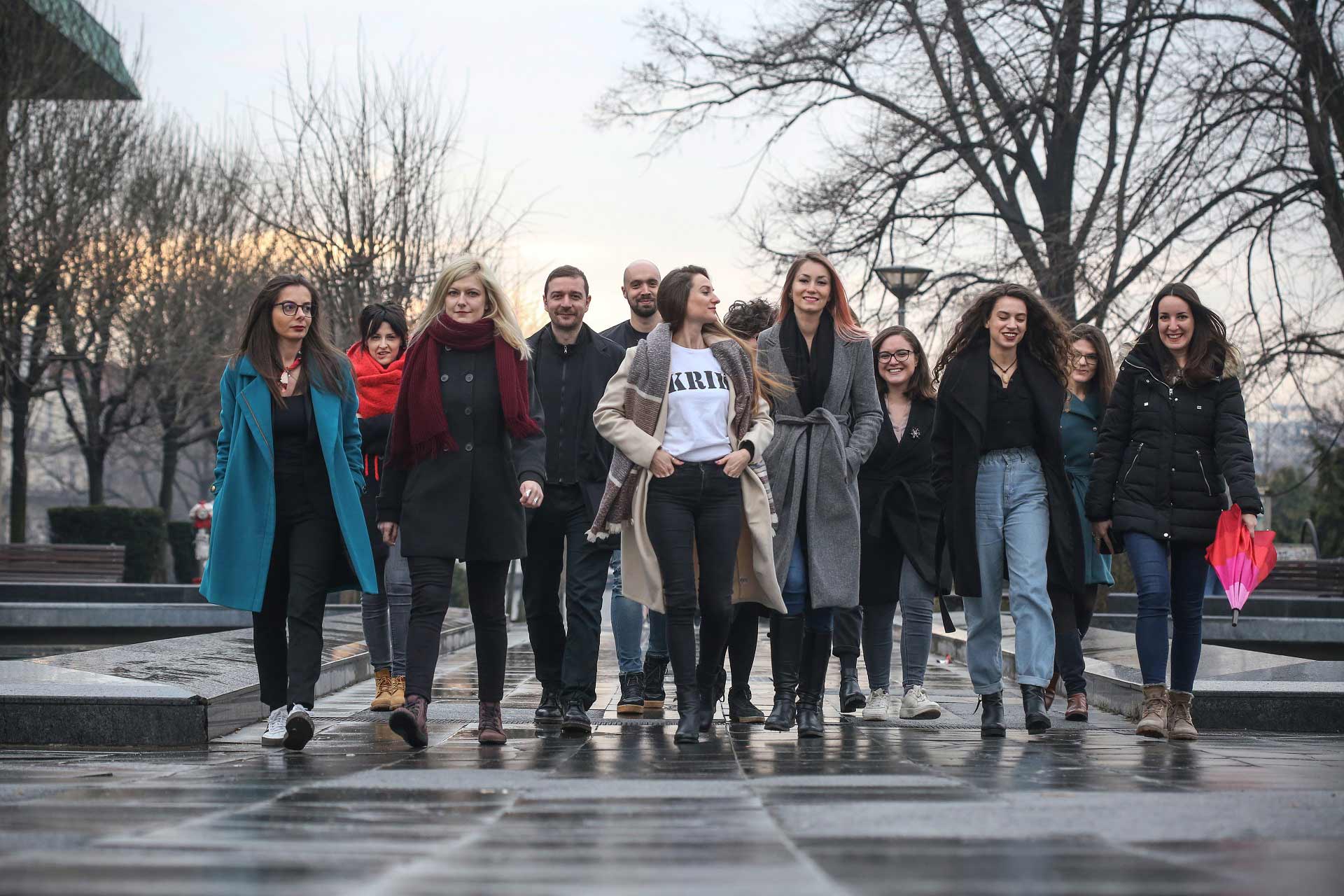The International Press Institute (IPI) and its global network today underscore our staunch support for the Crime and Corruption Investigative Network (KRIK) in Serbia as it faces a mounting barrage of vexatious defamation lawsuits and damaging court verdicts.
KRIK, a partner of the Organized Crime and Corruption Reporting Project (OCCRP), is one of the country’s leading investigative media organizations and has published a number of hard-hitting revelations about the nexus of politics, business and organized crime in Serbia.
In recent years, its investigations have rattled the government of President Alexander Vučić and implicated multiple ministers and MPs in alleged corruption scandals, drawing international recognition as well as the intensifying ire of the ruling party and its allies.
In response, the media outlet and its journalists has been hit with an avalanche of what IPI and other international press freedom organizations have long deemed to be strategic lawsuits against public participation (SLAPPs) – vexatious civil and criminal defamation suits aimed at intimidating the media outlet and draining it of both financial resources and time.
KRIK is now fighting more SLAPP cases in court than it has journalists working in its newsroom. In recent years its editor-in-chief and journalists have also faced death threats, break-ins at their homes and coordinated smear campaigns by oligarch-owned tabloid media close to the government.
Earlier this month, KRIK received a 12th SLAPP lawsuit, initiated by Nikola Petrović, a businessman and close ally of Vučić. The lawsuit targeted editor-in-chief Stevan Dojčinović and investigative reporters Bojana Jovanović and Dragana Pećo. It stemmed from an article about his alleged connections with drug trafficking networks in the Balkans and Colombia.
Earlier this week, KRIK was then convicted in the High Court in Belgrade for simply reporting on the SLAPPs it was facing. In 2021 it had published a list of individuals who had sued the newsroom, reporting that the majority of lawsuits had been filed by people connected to the government and stating that in their opinion these lawsuits were aimed at silencing their journalism.
Among the list were Serbian police commander Goran Živković and two associates from the police Witness Protection Unit. They then sued KRIK for a second time for being named on the SLAPP list. In a shocking verdict, the judge of the High Court in Belgrade, Slobodan Keranović, upheld their claims against KRIK and ordered the media outlet to pay damages. KRIK rightly plans to challenge the verdict at the Court of Appeal.
After the verdict, KRIK’s editor-in-chief Dojčinović said: “The ruling makes it clear that SLAPP lawsuits have become the regime’s main tool to shut down the few remaining independent media outlets. Things have gone so far that we are no longer even allowed to complain in public about the fact that our editorial office is flooded with lawsuits – they condemn us even for that”.
IPI and our global network are alarmed by this ruling. The fact that a professional media outlet can be convicted for simply stating its opinion that it had been targeted by SLAPPs represents a new level of absurdity. IPI hopes this ridiculous ruling will be overturned on appeal and renews our strong support for KRIK and its embattled newsroom.
Unlike in other European countries where SLAPPs are often ultimately thrown out following a costly and lengthy legal process, in Serbia KRIK has been on the losing end of court verdicts in the past. IPI and our partners have previously raised concerns about such decisions, which pose serious questions about the independence of the judicial system in Serbia and represent a major threat to media freedom.
After a recent visit to Belgrade, IPI and other press freedom groups condemned the deteriorating state of free media and the crisis facing independent journalism, citing the legal pressure on KRIK as a key example. Serbia continues to be one of the worst countries in Europe for SLAPPs and the number of documented cases is on the rise.
IPI believes the aim of these lawsuits is to isolate KRIK and pressure it into submission, muzzling its important watchdog journalism. This cannot be allowed to happen. IPI calls for renewed support for KRIK’s mission from the international community, as well as from Europe’s journalistic and press freedom communities.
- You can donate to support KRIK’s investigative journalism here.
This statement by IPI is part of the Media Freedom Rapid Response (MFRR), a Europe-wide mechanism which tracks, monitors and responds to violations of press and media freedom in EU Member States, Candidate Countries, and Ukraine. The project is co-funded by the European Commission.




